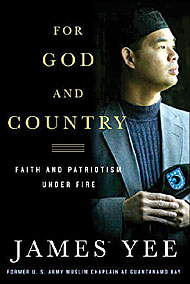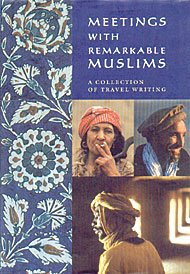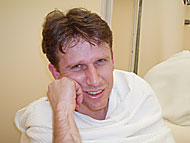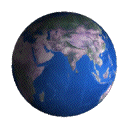
Pilgrims Move Into Mina
Syed Faisal Ali & Siraj Wahab,
Arab News
MAKKAH/MINA, 8 January 2006 — Hundreds of thousands of pilgrims chanting “Labbaik Allahumma Labbaik” (at your service O Allah ) moved into the valley of Mina yesterday at the start of Haj.
Many in the sea of white-clad believers were so moved by the occasion that tears streamed down their faces as they set out from Makkah for Mina, retracing the steps of Prophet Muhammad (peace be upon him).
“All our lives we have been waiting for this moment,” said Siti Ayesha, a teary-eyed Indonesian pilgrim. “We can’t believe that it has finally come.”
“To see all these people from around the world responding to the call and speaking in one voice to the Creator gives me unprecedented feelings,” said an Egyptian pilgrim who was among the first to arrive in Mina.
More than two million pilgrims from over 160 countries are performing Haj, seeking repentance, purification and spiritual renewal in a ritual performed by millions of Muslims every year for centuries.
“Security and health conditions of the pilgrims are excellent,” Makkah Governor Prince Abdul Majeed was quoted as saying.
The pilgrims will spend their time in Mina praying and reading the Holy Qur’an. A grueling trek to the plain of Arafat awaits them tomorrow.
Most pilgrims were performing Umrah at the Grand Mosque in Makkah before heading out to Mina. The Holy Haram, which has been packed with pilgrims for the last few days, was slowly getting emptied yesterday.
Pilgrims in ihram — men in two pieces of seamless white cloth and women covered modestly — briskly moved toward the place where their vehicles were parked. Others were bargaining for a deal with taxi drivers for dropping them to the tent city.
Vehicles blaring horns and packed with pilgrims raced with each other to try to reach the tent city first. The cab drivers were speeding in order to get more fares. It was a seller’s market.
The cabbies were charging up to SR100 for a trip that normally costs about SR10.
Traffic police faced tough times in regulating the vehicular traffic and pilgrims walking toward the pedestrian tunnel to Mina. All roads to Mina were packed with buses and other vehicles. The pilgrims were chanting the talabiyah and the entire area was reverberating with “Labbaik Allahumma Labbaik”.
An Egyptian pilgrim told Arab News that though he had set off for Mina, he still could not believe that Allah the Almighty gave him a call and this was his opportunity to perform Haj.
“I am religiously charged. I will not stop before I reach Mina. I have come for the first time and I want to see Mina when it’s not that full of pilgrims and I can have a clear idea of everything,” said Abdul Ghani Mutlab.
He said he was worried about the developments in the Middle East and the fate of the Muslim Ummah (nation) and had prayed to Allah to give us “strength and courage to fight the forces of infidels.”
Prayers changed with region and country: One pilgrim from Pakistan said that he prayed for the relief and rehabilitation of the Oct. 8 earthquake victims.
“My brother Irfan, who died in the earthquake wanted to perform Haj. I have come to perform Haj on his behalf and pray to Allah that not only my brother but all those who died in the earthquake should be pardoned their sins and given a place in Jannah (paradise),” Nadeem Ahmad Beem said.
A Bangladeshi crying in prayers was asking for the wellbeing of her children: “Oh Allah, give me health and strength so I can raise my children and make them stand on their feet. I beg you to give similar strength to my husband and make his trade bloom and make my children good Muslims and obedient.”
Ahmed Al-Muqrin from Lebanon spoke into his cell phone asking his wife at home for what he should pray on her behalf.
“I prayed for that already, what else do you want?” he said.
An Iraqi pilgrims who lost a leg in war was very emotional. Ahmad Razzak Tikriti said that there should be an immediate end to the suffering of the millions of Iraqis. I prayed for peace in Iraq and for the emergence of a strong and stable Iraqi nation after this war,” he said.
Abdi Berri Youssef, who lost his legs in the Somali civil war and whose son pushed him through the crowd in a wheelchair, raised his hands and called out: “Oh, God of the whole world, I am defenseless, give me strength and endurance, nothing else.”
Daouwd Zeinalabidine, a Nigerian lawyer: “Oh Allah, my Creator and my Benefactor praise is for You. You are the one who deserves to be obeyed till the end. I ask Your forgiveness and seek purity of my soul.”
He said he had also prayed for “peace for myself, for my country and for the whole world.”























